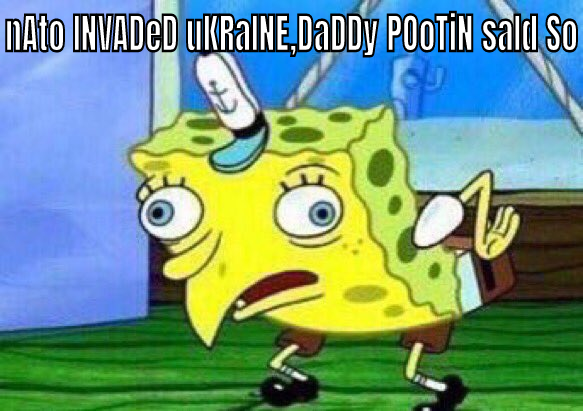WARSAW, Poland — Eastern European countries are raising alarm over Ukraine potentially being pushed into peace talks with Russia, amid growing partisanship in Washington, hesitation and delays in w…
If it’s a proxy war, that means that Russia attacked Ukraine to get back at the US, not the other way around. This means it’s on Russia to stop the war, by giving back an innocent country’s land that they stole.
I’m pretty left leaning, and I’m against any fascist state trying to turn its neighbors into vassal states for its interest. And yes, that means being against a lot of what the US does as well.
What has Ukraine Czechoslovakia allowed to have happen [sic] to it’s [sic] ethnic Russian German population comprising a decent portion of the east of Ukraine [sic] West of Czechoslovakia done during it’s [sic] time?
The settlement of the Czechoslovakian problem, which has now been achieved is, in my view, only the prelude to a larger settlement in which all Europe may find peace.
Neville Chamberlain, British Prime Minister, September 30th, 1938.
More context:
The Munich Agreement[a] was an agreement concluded at Munich on 30 September 1938, by Nazi Germany, the United Kingdom, the French Republic, and Fascist Italy. The agreement provided for the German annexation of part of Czechoslovakia called the Sudetenland, where more than three million people, mainly ethnic Germans, lived.
deleted by creator
Are you making fun of someone for parroting US talking points, while yourself parroting Kremlin talking points?
deleted by creator
So everyone who doesn’t agree with your (completely Russian aligned btw) views works for the US state dept? Are you in high school or something?
Coal mine. It’s high school for Russians.
Are you even aware of who invaded Ukraine and started the war?
NatO DiD iT
deleted by creator
Well, tell your buddy Putin to pack it up and go home. You do want the war to end, right?
If it’s a proxy war, that means that Russia attacked Ukraine to get back at the US, not the other way around. This means it’s on Russia to stop the war, by giving back an innocent country’s land that they stole.
deleted by creator
I’m pretty left leaning, and I’m against any fascist state trying to turn its neighbors into vassal states for its interest. And yes, that means being against a lot of what the US does as well.
What has
UkraineCzechoslovakia allowed to have happen [sic] to it’s [sic] ethnicRussianGerman population comprising a decent portion of theeast of Ukraine[sic] West of Czechoslovakia done during it’s [sic] time?More context:
What about what about what about…
https://www.putin-itogi.ru/putin-voina/